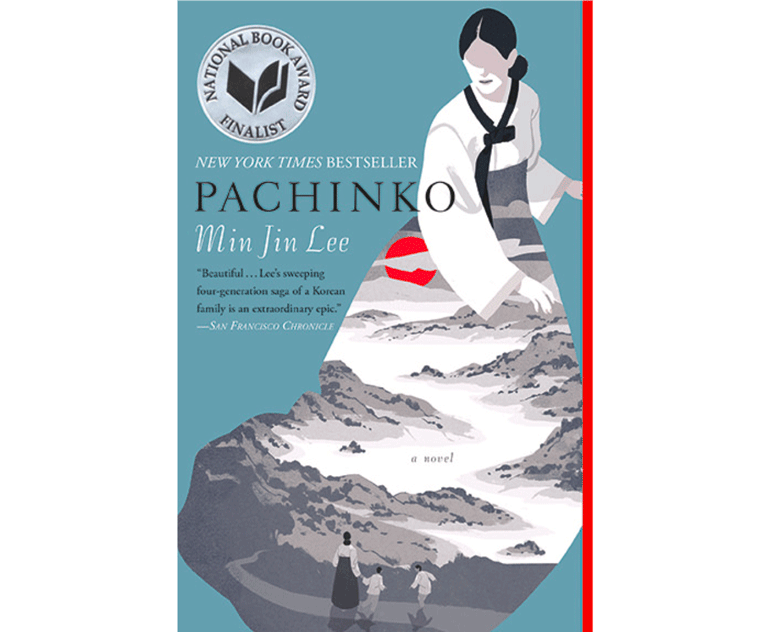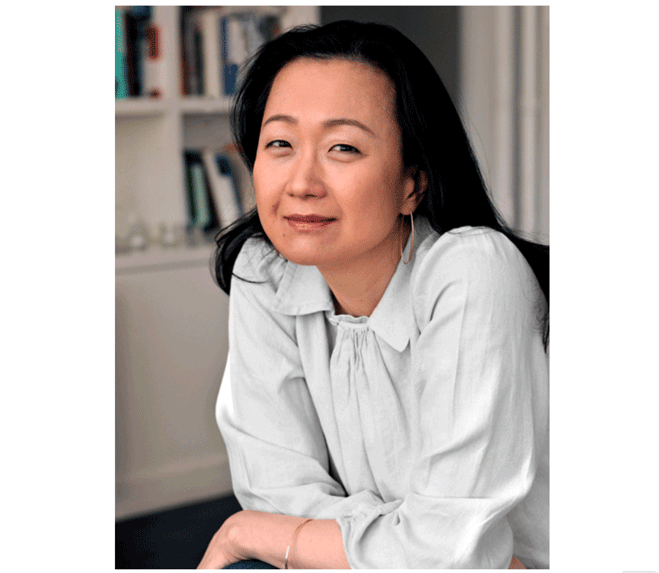When Korean American author Min Jin Lee was a junior in college, she attended a lecture as a favour for a friend. The speaker turned out to be an American missionary who talked about the history of Koreans in Japan, or “Zainichi”, and how they lived under oppression and discrimination during Japan’s occupation of Korea in the first half of the 20th-century.
During the lecture, the missionary told the story of a 13-year-old boy of Korean descent but born in Japan, who had jumped off from a building to his death. As his parents looked for a reason for his suicide, they found a yearbook in their son’s backpack. In it, they discovered the hateful and racist things his classmates had written. This event made such an impact on Lee that she spent the next 30 years writing a book because of it.

Pachinko is a historical fiction novel that tells the story of a Korean family through several generations. The story begins in a unified Korea during the occupation of Japan. Sunja, a 16-year-old girl who works with her mother at their boarding house in Yeongdo, finds out that she’s pregnant. After she discovers that the father of the baby is not an option, she decides to accept a marriage proposal from Isak, a young Christian minister on his way to Japan. The year is 1933 and the young family arrives in Osaka to begin a new life.
Living in Japan doesn’t turn out to be what they hoped. They find themselves confined to specific neighborhoods and limited job opportunities as they struggle to make ends meet. Most Japanese think of them as lazy or as criminals. The next generations, their children and grandchildren, soon find out that they have two options to succeed. One is to “pass” for Japanese, having to hide their language, their religion, their clothes – their entire identity. The other is to seek out alternative professions in businesses considered as inferior or of dubious reputation, such as pachinko.

“Pachinko is a kind of vertical pinball game played by adults in Japan,” the author explains in the Reading Group Guide at the end of the paperback edition. “Although gambling is formally illegal there, pachinko bypasses this prohibition by allowing the players to win prizes, called keihin, which are exchanged outside the premises of the pachinko parlor for cash.”
Pachinko parlors are in fact a huge part of Japan’s economy, annually generating twice the export revenue of the entire Japanese car industry and 30 times the gambling revenue of Las Vegas. They were also one of the few businesses where Koreans in Japan could find employment — a fact that plays a pivotal role for the family of this novel.
Although the characters are fictional, the stories are very much based on real experiences. “With every page I could probably drop a footnote and give you historical references, interviews that I did,“ Min Jin Lee remarks. Historical events such as the Second World War, the American occupation of Japan and the Korean War also play a role in shaping the fate of this family, subjected to the whims of external forces greater than themselves.

“I think that one of the great things a fiction writer can do is to make the reader feel seen,” she observes.
The longing for home, the unfounded discrimination, the will to assimilate, and the feeling of not belonging anywhere are all aspects of the wider immigrant experience that Min Jin Lee explores through the Korean Japanese community. Greater accordance with the United Nations Sustainable Development Goal for Reduced Inequalities should be a higher concern, since even today they face social and legal discrimination. Moreover, the path to becoming a Japanese citizen can still prove to be difficult.
A beautiful and moving portrait, Pachinko tells the story of people sacrificing everything to survive and our failure as a society to acknowledge them.
Buy Pachinko at your favourite independent bookstore, or get it from your local library. You can also learn more about Min Jin Lee at her website and follow her on twitter.
